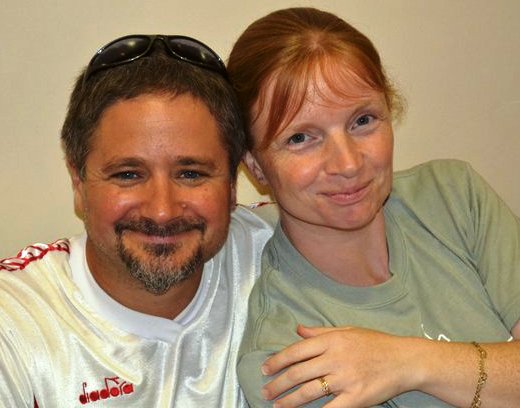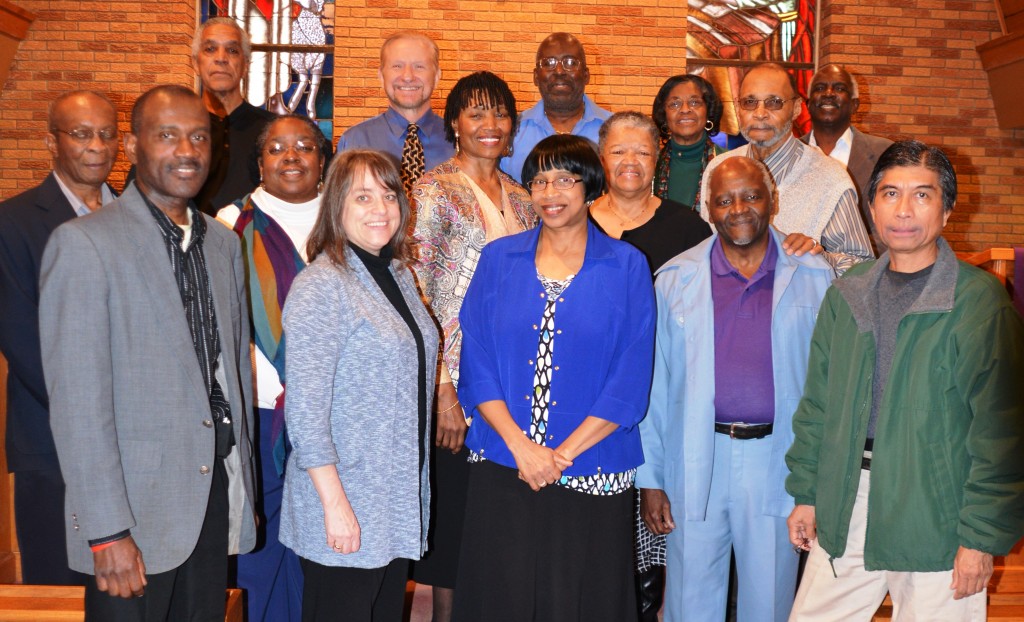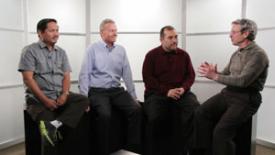Dear Brothers and Sisters in Christ,
 At this time of year, we celebrate the great sacrifice of Jesus Christ, by which our sins are forgiven and our eternal future is assured. It was the greatest act of love we can imagine—although we can’t fully grasp the depth of that love.
At this time of year, we celebrate the great sacrifice of Jesus Christ, by which our sins are forgiven and our eternal future is assured. It was the greatest act of love we can imagine—although we can’t fully grasp the depth of that love.
As Paul wrote to the Romans, “Very rarely will anyone die for a righteous person, though for a good man someone might possibly dare to die. But God demonstrates his own love for us in this: While we were still sinners, Christ died for us” (Romans 5:7-8).
What the Lord God did in Jesus goes far beyond any human standards of love and sacrifice. That is why we find it so hard to accept, without any reservations, the richness of God’s grace. We read that our sins are forgiven, but we feel the need to add an “if.” We understand that God’s love for us is unconditional, and yet we still think there is a “but.” Unconditional love and forgiveness seem too good to be true.
People in Old Testament times didn’t have this problem. The Temple animal sacrifices left no doubt that the removal of sin was a bloody and messy business. But even then, some were able to glimpse that there was more to the forgiveness of sin than slaughtering an animal. David, when confronted with his multi-faceted sin with Bathsheba, pleaded,
Hide your face from my sins and blot out all my iniquity.
Create in me a pure heart, O God, and renew a steadfast spirit within me.
Do not cast me from your presence or take your Holy Spirit from me.
(Psalm 51:9-11)
David realized that his outrageous behavior had damaged his relationship with God. He wanted desperately to make it right. However, a visit to the Temple with a sin offering was not enough.
You do not delight in sacrifice, or I would bring it;
you do not take pleasure in burnt offerings.
My sacrifice, O God, is a broken spirit;
a broken and contrite heart, O God, you will not despise.
(Psalm 51:16-17, NIV margin)
David was ahead of his time in glimpsing God’s grace, realizing there was nothing he could do except admit his guilt and ask for forgiveness. As we know, he was forgiven and later, in happier times, he could sing confidently:
For as high as the heavens are above the earth,
so great is his love for those who fear him;
as far as the east is from the west,
so far has he removed our transgressions from us.
(Psalm 103:11-12)
The world of David’s day was much less technologically advanced than ours. Most people thought of the heavens as a vast inverted bowl in which the sun, moon and stars moved. In Psalm 103, David used that view of the cosmos as an analogy for the vastness of God’s forgiveness and mercy, which separates our sins from us by an unimaginable distance. That sense of vastness is sometimes blunted in our modern age. I often fly long distances “through the heavens” from east to west and back again. Thus, David’s analogy might seem less impressive. But it shouldn’t. Just last week we were reminded of how vast the cosmos truly is. In 1977, an unmanned spacecraft named Voyager 1 was launched from Cape Kennedy. Its mission was to travel along a trajectory that would take it through our solar system, sending back photographs as it traveled.
Voyager 1 has fulfilled its mission brilliantly. After traveling for 18 months, it sent back stunning pictures of Jupiter. Three years into its mission it gave us the first close-up pictures of the ringed planet Saturn. Now, over 35 years later, Voyager 1 has traveled farther “from east to west” than any other man-made object. It is now over 11 billion miles from earth. Its signals, traveling at the speed of light, take about 18 hours to reach us. It is heading out of our solar system at about 38,000 miles an hour. Last week, scientists were speculating that either it has, or soon will, move beyond the influence of the sun. Its power plant may be able to send us signals for a few more years. But then Voyager will be on its own, hurtling through interstellar space until it comes under the influence of another star in about—wait for it—40,000 years!
The journey of Voyager 1 puts David’s analogy of “east from west’” and “above the heavens” into perspective, doesn’t it? Although the spacecraft has traveled through only a tiny fraction of our cosmos, the distance, even with our modern scientific understanding, is beyond our ability to grasp. Perhaps if David was writing Psalm 103 today, he might put it this way:
For as far as interstellar space reaches away from earth,
so great is his love for those who fear him;
as far as Voyager has traveled from east to west,
so far has he removed from us our transgressions.
God’s commitment to remove from his memory the guilt and stain of our sins is still greater than anything we humans can imagine. That’s how great God’s love for us is. And always will be. Let’s be thankful for that.
Your brother in Christ’s service,
Joseph Tkach
PS: With this issue, we have posted Scripture, God’s Gift, the first article in a six-part series entitled Guidelines for Interpreting Scripture by Gary Deddo (the article also is linked under the Church Development heading at upper left). We will be publishing the other articles in the series, one every-other week, over the next three months. I think you will find these articles extremely helpful.
Embracing Incarnational Trinitarian Theology means reviewing and, if necessary, changing many of our ideas, including our approach to Holy Scripture. Gary has spent his career studying and teaching the Bible—bringing to the task a deep love and respect for Scripture as well as his world-class scholarship. As I read the articles, I found myself thinking, “In a few sentences Gary has said what it’s taken me years to learn.” Though we can’t all be professional theologians, this series will help us become “a worker who does not need to be ashamed and who correctly handles the word of truth” (2 Timothy 2:15). I hope you enjoy the series. Please let me know what you think of it.







